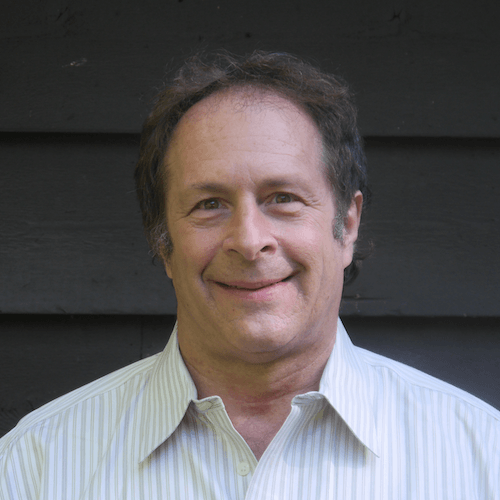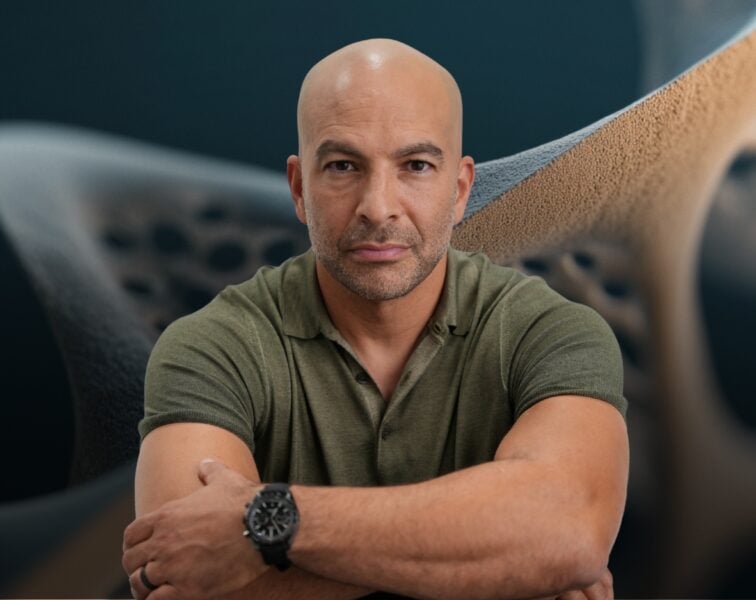In this episode, Rick Doblin, founder and executive director of MAPS, discusses MDMA, a molecule that has (at a minimum) revolutionary therapeutic benefits for PTSD, but arguably could have, at the highest order, a lasting impact on humanity’s ability to peacefully coexist. Rick details the history of MDMA, what lead to its unfortunate criminalization, and his lifelong work trying to protect MDMA (and other psychedelics) from criminalization (and his subsequent attempt to decriminalize it) Through his founding of MAPS, Rick has made enormous progress in debunking many of the exaggerated risks being claimed against MDMA (neurotoxicity, memory loss, depression, Parkinson’s, etc.), and is very close to getting FDA approval for a psychotherapy technique using MDMA. Additionally in this discussion, you will learn about the history of LSD, psilocybin, and other psychedelics and how the combination of the misunderstanding of them with the crackdown on drug use in the 1970s lead to their designation of schedule 1 substances. But it’s important to note that you will also realize from this discussion just how different MDMA is compared to the average psychedelic. We end this discussion with a message of hope: there are going to be many people who are going to wonder what can they do to receive this MDMA therapy. We talk about what those clinical trials look like, what the enrollment looks like, and perhaps more importantly, what a compassionate use license would look like, such that if there are patients who are in need of this therapy (prior to its approval) they can have an understanding of the legal paths to doing just that.
Want more content like this? Check out our interviews with Kristin Neff on the power of self-compassion and Esther Perel on the effects of trauma.
Subscribe on: APPLE PODCASTS | RSS | GOOGLE | OVERCAST | STITCHER
We discuss:
- Discovering MDMA, how Rick learned about it and his first experiences with it [9:45];
- The timeline of MDMA’s evolution, the reinvention in the 1970s, “ecstasy”, the criminalization of MDMA [21:10];
- Explaining the different “schedules” of drugs [30:55];
- Rick’s fight to protect it for therapeutic uses, losing to the DEA despite winning in the court, the scientific community, and the media [38:25];
- The risks involved with taking MDMA [42:30];
- An incredible MDMA-LSD case study: Rick’s story of healing a treatment-resistant PTSD patient in the 1980s [44:45];
- How and why MDMA was declared illegal on an emergency basis going against the judge’s recommendation after hearing Rick’s compelling case (and multiple appeals) in court [57:15];
- Rick’s decision to study politics to affect change from the inside out, and the recent progress being made with the DEA [1:07:00];
- Debunking the exaggerated risks of MDMA (e.g., neurotoxicity) [1:16:30];
- Rick’s unbelievable ability to play the long game [1:28:45];
- Which patients would not be good candidates for MDMA from a safety perspective? [1:34:30];
- How MDMA is different from all other psychedelics, the importance of the setting, and Peter’s experiences with MDMA [1:36:30];
- MDMA studies which lead to the crucial designation as a “breakthrough therapy” [1:40:30];
- How someone with PTSD can get treated now through “expanded access for compassionate use” [1:46:00];
- Rick’s ultimate goal and long term vision for psychedelic clinics [1:50:30];
- Trip of Compassion documentary, and how psychedelics could change the world [1:52:30];
- Rick’s early life: Resisting the draft, his feeling of wanting to change the world, and his profound experiences with LSD and other psychedelics [1:55:30];
- The history of LSD and psilocybin, and the CIA’s interest in psychedelics [2:10:45];
- Timothy Leary and the Good Friday Experiment [2:22:00];
- Rick’s follow up study to the Good Friday Experiment, and his criticism (and praise) of Tim Leary [2:33:50];
- Peter’s experience taking psilocybin [2:44:30];
- The Concord Prison Experiment, and Rick’s follow up study 34 years later [2:47:00]; and
- More.
Get Peter’s expertise in your inbox 100% free.
Sign up to receive An Introductory Guide to Longevity by Peter Attia, weekly longevity-focused articles, and new podcast announcements.
Discovering MDMA, how Rick learned about it and his first experiences with it [9:45]
Multidisciplinary Association for Psychedelic Studies (MAPS)
- Rick is the founder and director of MAPS (founded in 1986)
- Wikipedia page
Realms of the Human Unconscious by Stan Grof about his work with LSD
- This book really influenced Rick when he was in college in 1972
- “That book that really helped me see that here is spirituality, but viewed through a scientific lens. And it had the reality check of therapy. It’s focused on how do you help these people suffering from different conditions grow.”
In 1972, Rick dropped out of college (he was attending New College of Florida)
For the next 10 years (1972-1982)…
- He did “everything that I could to try to elevate and expand my consciousness, including I have the delusion that the more psychedelics I took, the faster I would evolve, which I underestimated the whole integration process.”
In 1982, Rick re-enrolled at New College to study transpersonal psychology and psychedelic psychotherapy
Rick learns about MDMA for the first time
- Shortly after returning to New College, Rick took a month-long workshop by Stan Grof called the “Mythical Quest” at the Esalen Institute
- And so during this month long at Esalen, he met a woman named Debby Harlow who started talking about this new drug called “Adam” and how it was used in therapy
- “Adam” turned out to be what’s now called MDMA
Early days of MDMA
- Used in underground therapy circles since the middle ’70s
- By 1982, it had “escaped” therapy circles and was started to be sold as “ecstacy”
- Rick said he initially underestimated the drug because people weren’t having “profound trips” and instead seemed perfectly capable of normal conversation
MDMA is unlike most psychedelics, it’s an empathogen
- The empathogen is a really good word for MDMA, that it produces empathy
- This term was really created once we needed to legally protect the use of MDMA
- It was to try to say that it wasn’t like a traditional psychedelic
- There is no dissociation
- There’s no hallucination
- You remember the experience as though you’re completely awake
- “MDMA is a psychedelic, but it’s not a classic psychedelic.”
Rick’s first time taking MDMA
First took it with his girlfriend (at the time)
“This love we’re expressing and experiencing is… It’s really us. It’s not a drug delusion. It’s liberating us to express what we really feel. I felt like the profundity and the depth of connection was genuine and also something that we could learn from.”
Why Rick believes MDMA is so therapeutic:
“I think one of the things that makes this so helpful therapeutically is that because you’re not dissolving your ego, it’s easier to integrate what happened. It’s not that far away from normal consciousness. It’s a subtle shift with a reduction in fear in the amygdala, and different areas. It’s just profound, therapeutic. And so once I tried it, I thought that this was an incredible opportunity.”
- In 1970, this Act was the criminalization of all the psychedelics, and the effort to squash psychedelic research all over the world
- MDMA was not part of that act
- This prompted Rick to start a non-profit in 1984
Rick was inspired by the book, New Genesis: Shaping a Global Spirituality by Robert Muller
- He read it in 1983
- Book argued for the need for a global spirituality being the key to human survival
- The only thing the book was lacking was the mention of psychedelics
Rick then wrote a letter to Robert
- Rick told Robert about MDMA and the Good Friday Experiment
- His letter led to an introduction to Laura Huxley
- This relationship led to the non-profit whose purpose was to try to figure out how to protect MDMA and keep it from becoming illegal
The timeline of MDMA’s evolution, the reinvention in the 1970s, “ecstasy”, the criminalization of MDMA [21:10]
- However, in parallel to Rick’s learning about MDMA, it has found its way into the public as ecstacy and was being used as a party drug
- Famously used at Starck Club, in Dallas, Texas
- Ecstasy was created by Michael Clegg
- The drug was gaining popularity…
{end of show notes preview}
Would you like access to extensive show notes and references for this podcast (and more)?
Check out this post to see an example of what the substantial show notes look like. Become a member today to get access.

Rick Doblin, Ph.D.
Rick Doblin, Ph.D., is the founder and executive director of the Multidisciplinary Association for Psychedelic Studies (MAPS). He received his doctorate in Public Policy from Harvard’s Kennedy School of Government, where he wrote his dissertation on the regulation of the medical uses of psychedelics and marijuana and his Master’s thesis on a survey of oncologists about smoked marijuana vs. the oral THC pill in nausea control for cancer patients. His undergraduate thesis at New College of Florida was a 25-year follow-up to the classic Good Friday Experiment, which evaluated the potential of psychedelic drugs to catalyze religious experiences. He also conducted a thirty-four year follow-up study to Timothy Leary’s Concord Prison Experiment. Rick studied with Dr. Stanislav Grof and was among the first to be certified as a Holotropic Breathwork practitioner. His professional goal is to help develop legal contexts for the beneficial uses of psychedelics and marijuana, primarily as prescription medicines but also for personal growth for otherwise healthy people, and eventually to become a legally licensed psychedelic therapist. He founded MAPS in 1986, and currently resides in Boston with his wife, two dogs, and empty rooms from three children, one of whom is in college and two have graduated. [maps.org]
Twitter: @rickdoblin



